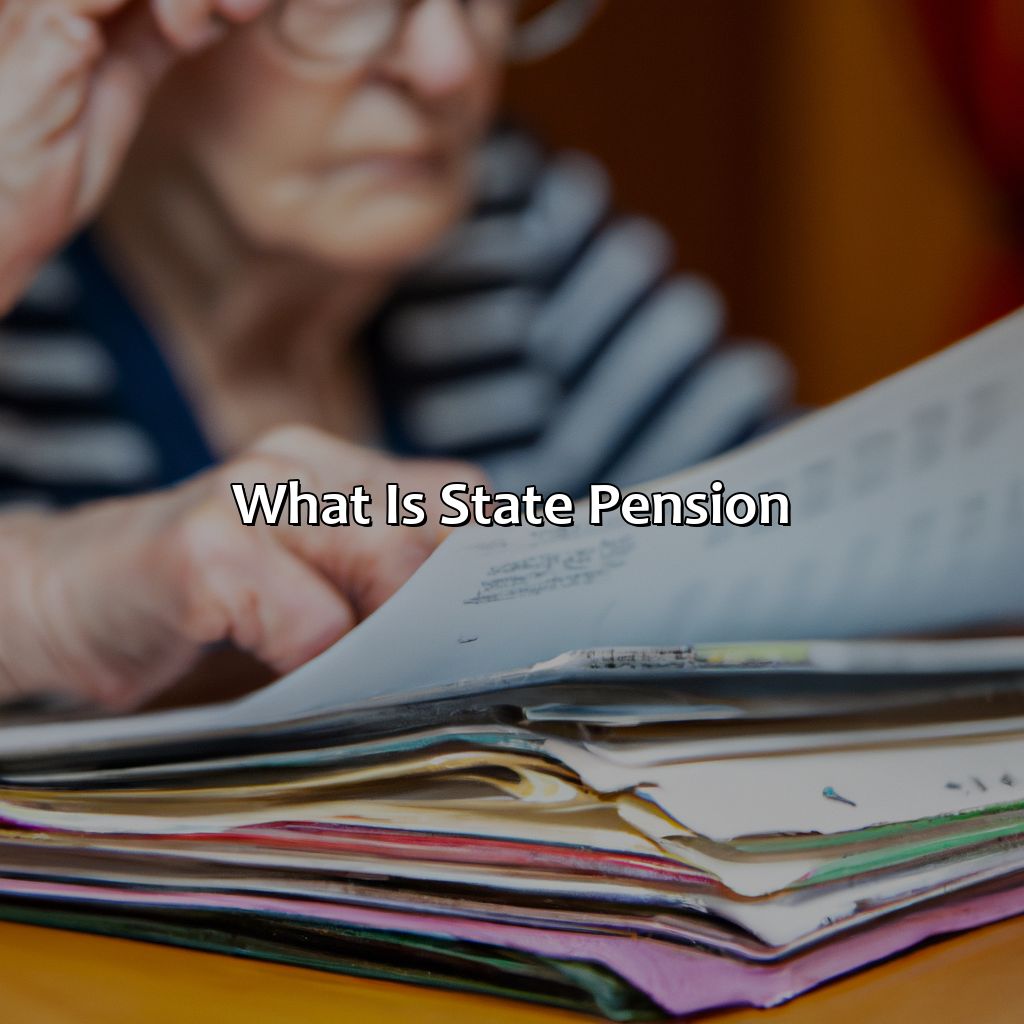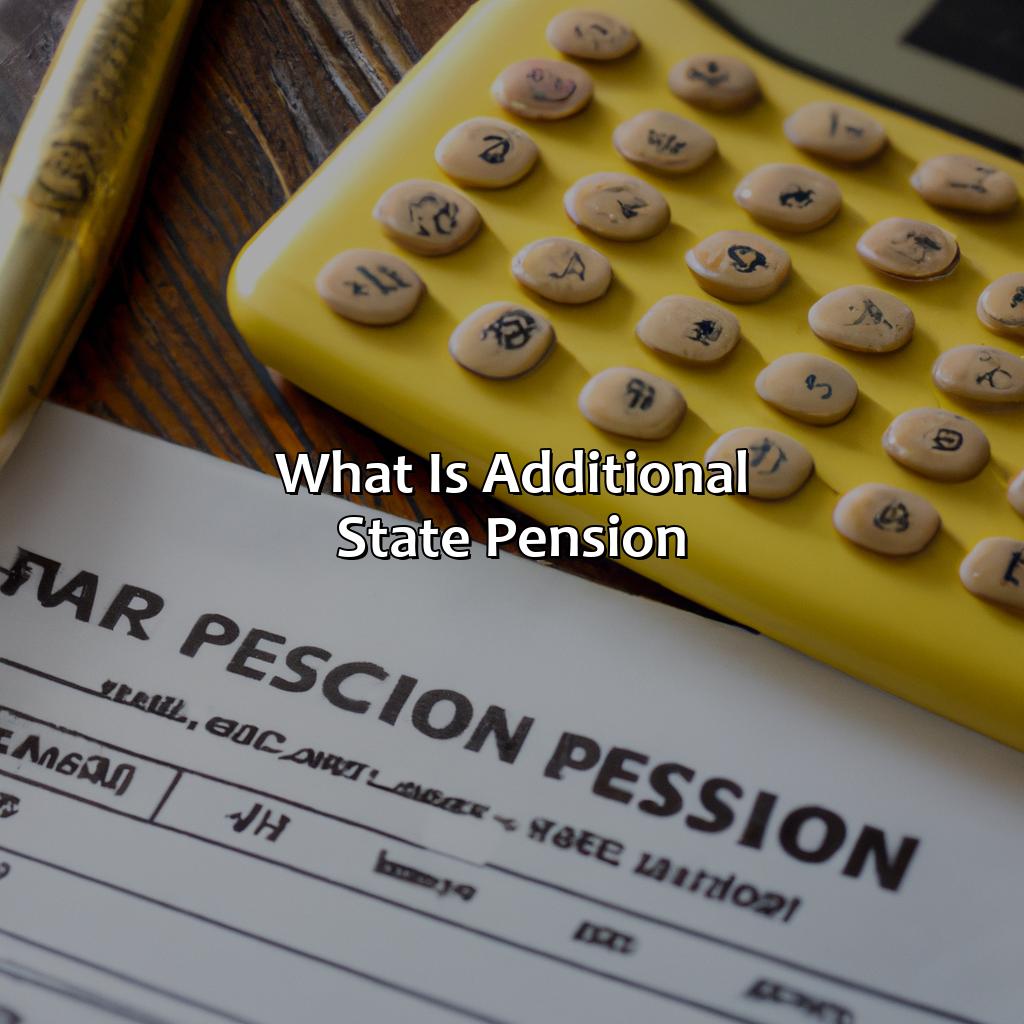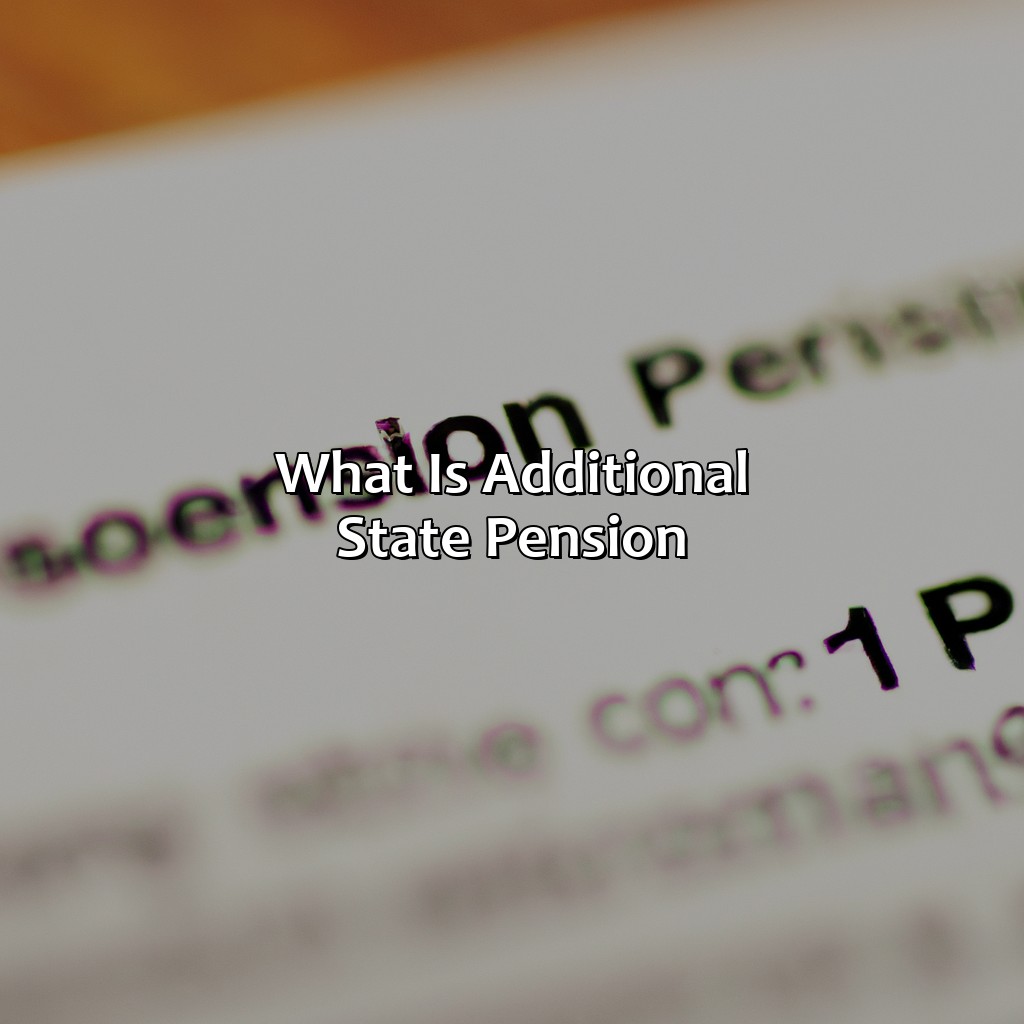What Is Additional State Pension?
Key Takeaway:
- Additional State Pension is an extension of the basic State Pension provided by the UK government and is based on an individual’s National Insurance contributions. It is designed to provide additional income to individuals who contribute more than the basic requirement.
- To qualify for Additional State Pension, an individual must be eligible for the basic State Pension and have made qualifying National Insurance contributions. The amount of Additional State Pension depends on the number of qualifying years of contributions and the amount of earnings.
- Examples of Additional State Pension include the State Second Pension, the contracting-out rebate, and the Graduated Retirement Benefit. It is important to understand the different types of Additional State Pension and how they factor into your overall retirement income.
You want to understand how the additional state pension works? Look no further! This article will provide a comprehensive understanding of the key details, helping you make the right decisions for your retirement. Knowing how the additional state pension works can alleviate financial worries and allow you to confidently plan for your future.
What is State Pension?
State Pension is a government-funded benefit that provides a regular income to individuals who have reached the minimum qualifying age. It is designed to support individuals in their retirement years when they are no longer earning a regular income from work. It is based on the individual’s National Insurance contributions and can be paid out in full or as a partial payment, depending on the contributions made.
The Additional State Pension, also known as the Second State Pension, is an extra payment on top of the basic State Pension. It provides an additional source of income to help cover living costs during retirement and is based on an individual’s earnings. Those who have earned less than the Lower Earnings Limit will not be entitled to this pension, while those who have earned above the Upper Earnings Limit will only receive a partial payment. If you want to learn more about Category A State Retirement Pension, click here.
It is important to note that the Additional State Pension was replaced in 2016 with the new State Pension scheme, which is a flat-rate pension based on an individual’s National Insurance contributions alone. However, those who have built up Additional State Pension entitlement up to April 2016 can continue to receive it alongside the new State Pension. If you are wondering what does opt out of state pension mean, it means choosing not to participate in the State Pension scheme and instead opting for private pension plans.
In the past, the Additional State Pension was known as the State Earnings Related Pension Scheme (SERPS), which was introduced in 1978 to provide an extra pension on top of the basic State Pension. It was then reformed in 2002 to the State Second Pension, and finally replaced in 2016 with the new State Pension scheme.

Image credits: retiregenz.com by Joel Jones
What is Additional State Pension?
Additional State Pension refers to the pension amount you may receive in addition to your basic State Pension. It is based on your National Insurance contributions and earnings history. The amount you receive is determined by several factors, including your employment status and how much you earn. The amount received can vary depending on your individual circumstances.
In the UK, the What Is The Uk State Pension? was replaced by the new State Pension in April 2016, but those who reached State Pension age before this date may still be eligible for Additional State Pension payments. It is important to check whether you may be eligible for this pension scheme and how much you may be entitled to.
To learn more about what is the UK state pension and how it works, visit our website.RetireGenius helps you secure your future so you can enjoy your retirement to its fullest.
In some cases, individuals may also be entitled to an Additional State Pension if they have been widowed or divorced. The rules around Additional State Pension can be complex, so it is important to seek professional financial advice if you are unsure.
A retiree named John had been paying National Insurance contributions throughout his working life and was surprised to learn that he was eligible for an Additional State Pension payment. He sought the advice of a financial advisor, who helped him understand the complex rules and ensure that he received the additional pension he was entitled to.

Image credits: retiregenz.com by David Jones
Some Facts About Additional State Pension:
- ✅ Additional State Pension is also known as State Second Pension or SERPS. (Source: Money Advice Service)
- ✅ It is a top-up to the basic State Pension, based on your National Insurance contributions. (Source: GOV.UK)
- ✅ The amount of Additional State Pension you receive depends on your earnings and how many years you have paid into National Insurance. (Source: Money Advice Service)
- ✅ Since 2016, it has not been possible to build up any further Additional State Pension entitlement, as it has been replaced by the new State Pension system. (Source: Age UK)
- ✅ If you reached State Pension age before April 6, 2016, you may still receive Additional State Pension. (Source: Money Advice Service)
FAQs about What Is Additional State Pension?
What is additional state pension?
Additional state pension, also known as state second pension, is an extra pension payment provided by the government to individuals who meet certain eligibility criteria.
Who is eligible for additional state pension?
Individuals who have made national insurance contributions or received national insurance credits throughout their working life may be eligible for additional state pension. Additionally, those who have contracted out of the pension scheme may also be entitled to receive additional state pension.
How is additional state pension calculated?
The amount of additional state pension an individual can receive is based on their national insurance contributions or credits, as well as their earnings history. The more contributions an individual has made, the higher their additional state pension payments will be.
Can I opt out of additional state pension?
Individuals may have the option to contract out of the state pension scheme, which means that they will not receive additional state pension payments. Instead, they may receive alternative pension benefits from a workplace or personal pension scheme.
When will I receive my additional state pension payments?
Additional state pension payments are typically paid out alongside the regular state pension, which is usually paid out once every four weeks. The exact timing of payments may depend on an individual’s specific circumstances and when they reached retirement age.
Is additional state pension taxable?
Yes, additional state pension payments are subject to income tax. The amount of tax an individual will pay on their pension payments will depend on their overall income and tax bracket.
